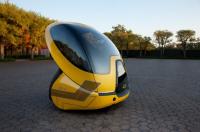Driverless vehicles set to halve your car insurance bill
Self-piloted cars could be seen on the UK’s roads in the next few years with several companies already trialling the technology. Now, experts believe that driverless cars could cut the average car insurance by £265 within five years because they will eliminate bad driving – the cause of most accidents on the roads.
Motoring insiders believe that the technology is developing so fast that road accidents caused by human error could become a thing of the past by 2020. Keep reading to find out more.
‘Autopilot mode’ set to reduce accidents by 90%
Bad driving and human error are the cause of around 90 per cent of road accidents in the UK. As driverless cars begin to eliminate these factors, consumers could see the cost of their car insurance halve – and this could happen within the next five years.
John Leech, head of auto at consultancy KPMG, said: “Insurance premiums could halve once vehicles which communicate with each other and an ‘autopilot mode’ when driving on the motorway are developed – this is likely to happen by approximately 2020.”
According to the AA, the average cost of fully comprehensive car insurance is now £530, a fall of 5.8 per cent over the last year. Costs remain high because of the incidence of ‘avoidable accidents’ which, according to Matthew Avery, safety researcher at vehicle rating firm Thatcham, account for most insurance payouts.
Manufacturers claim that driverless cars can eliminate these types of accidents. According to the Daily Telegraph, the first autonomous vehicles are set to appear on British roads as early as 2018 to 2020. Companies such as Tesla and Mercedes are developing cars that drive and park without your feet or hands touching the controls.
Why car insurance will be cheaper with a driverless car
Car insurance premiums are set to reduce by half once driverless cars are introduced. The main reason for this is that responsibility for injury or damage caused in an accident will shift from the driver to the manufacturer of the vehicle.
At present, most accidents are caused by human error – for example tiredness or the influence of alcohol or drugs. When these are eliminated, only ‘catastrophic’ accidents will remain and these should only occur when driverless technology fails. Car crashes will then become a matter of product liability rather than car insurance.
Mr Avery from Thatcham said: “The fender benders we see now will be completely eradicated by there will be crashes, and they are likely to be catastrophic crashes. We need to understand who is liable – whether the driver or the vehicle is driving at the time.”
Graeme Trudgill of the British Insurers and Brokers Association said the implications for car insurance were ‘unpredictable’ but that “if 90pc of accidents are caused by human error this should lead to much cheaper [insurance] rates.”
However, he believes that there will always be a place for car insurance on driverless roads. “You, the driver, will always be responsible in some way, so traditional motor insurance will be required.
“We would need legislative change before the responsibility for crashes fully passes to manufacturers, so we will have to see how things develop,” he said.
According to Thatcham it takes around 15 years for the entire fleet of cars on British roads to change and so traditional cars will remain on Britain’s roads. In addition, classic cars cannot be retrofitted with driverless technology and are expected to remain popular.
“It’s possible that premiums for these cars will be even higher, especially if drivers of the future – used to driving semi-controlled cars – lose the skills we have today,” Mr Trudgill said.






